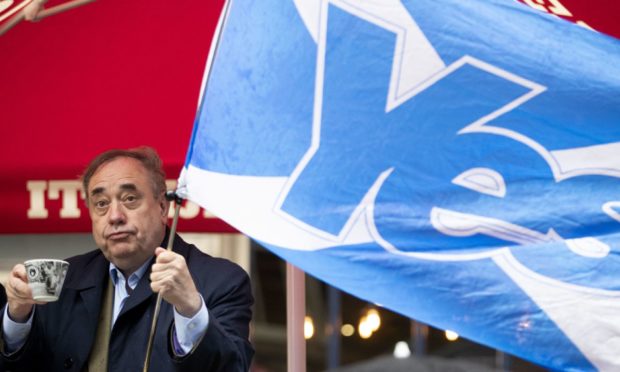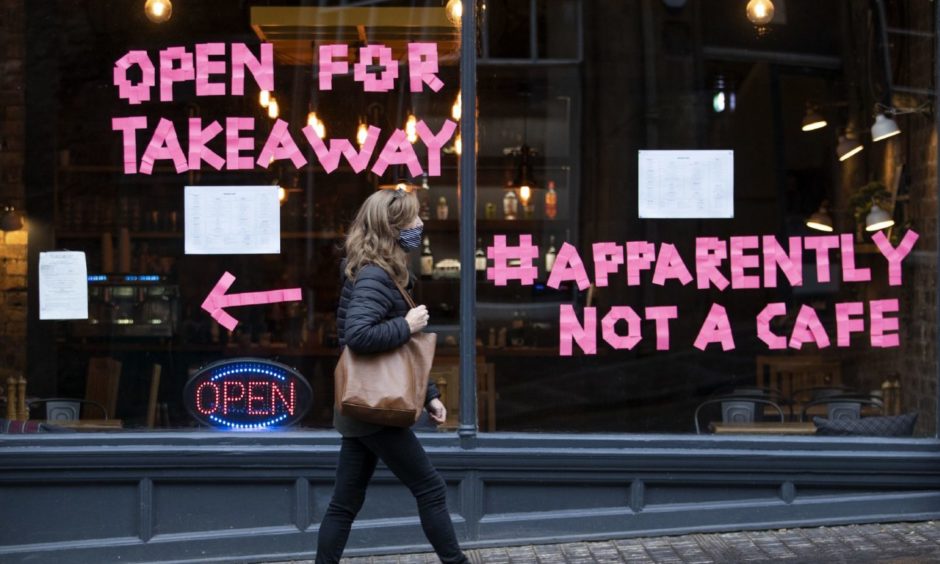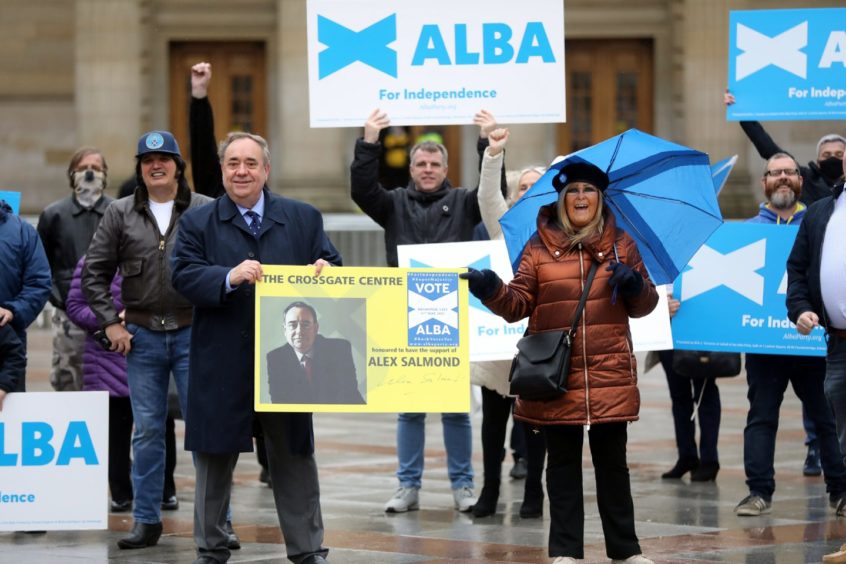Scotland is facing a combustible future.
No matter what happens in Thursday’s Holyrood elections the political scene and civic and general life seem set for increasingly heated times.
At our universities and schools a flood of disgruntled students and parents could be set to contest exam results and launch complaints over teaching issues in the wake of the Covid crisis.
In the hotel, pub and leisure sectors, among a host of industries facing difficulties, unemployment figures could soar, affecting mortgage, rent, and PCP payments.
Meanwhile the battle for the future of the UK will be firmly engaged with the gloves really coming off as the independence camp and the unionists try to deliver the final knockout blow to each others case.
It will fall to politicians in London and Edinburgh to tackle these issues and those not exhausted by the draining events of the last year will need to find the energy and innovation to fix them.
In the independence movement a civil war seems certain between two increasingly divided camps with skirmishes already well underway on social media.
Many, who left the SNP to join Salmond’s new independence party, are raging at what they see as a capitulation to a small number of entryists
I suspect that guerrilla war could erupt into full blown conflict as the SNP continue with their cautious approach to ‘building the case’ for independence, much to the anger of Alba, the new ‘old’ kids on the block.
Alex Salmond, the Alba creator, said to me recently: “If you’d told me seven years ago that the party that I once led would be captured by around a hundred loony tune transgender warriors I’d have laughed at you.” (Alex Salmond insists this quotation is inaccurate)
Many, who left the SNP to join Salmond’s new independence party, aren’t rolling in the aisles.
Most are raging at what they see as a capitulation of the SNP to a small number of entryists.
They think the pursuit of ‘the dream’ has been abandoned on the altar of minority interests like gender recognition and trans issues.
There’s little doubt that the SNP will have a majority of MSPs when results are declared on Saturday.
However, if they don’t have a majority when actual numbers are counted then their case for independence is weakened.
They then face a gruelling fight on two fronts.
Alba and the broader independence movement will demand abandonment of a timid approach to pursuing the cause, while the parties of union will fire in with all guns blazing on what they argue are the weaknesses in the independence case on currency, pensions, and a hard border with the rest of the UK.
Sarwar’s star on rise
The demand to push harder for independence on the one hand and anger at a failure to recognise the will of the majority on the other will ensure a bitter political period ahead.
Anas Sarwar has had very little time as leader of the Labour party in Scotland but has shown some early promise in identifying issues which are the every day bread and butter for most people.
He will be working hard to convince many Scots like me who abandoned Labour for independence years ago that there is a better future free from what he sees as narrow nationalism.
Meantime Boris Johnson continues to be the Teflon man unfazed and undamaged by any dirt thrown at him.
Those hoping that his recent home decorating scandal meant curtains for him have seen those hopes firmly closed as the Tories do what they do best, close ranks against all comers.
The gaffe regarding his gaff isn’t playing as well as his opponents hoped, and Johnson sails blithely on, despite revelations his living requirements require an eye watering annual income of £300,000 – 10 times the annual wage.
The untouchable prime minister is contemplating a spending splash to bypass Holyrood, with billions of pounds made available for infrastructure and other projects, in a major programme of Keynesian intervention to create and protect jobs.
Covid-19 meant I had to cut short my three year stint as University of Dundee Rector by around a year.
While that causes me some sadness, I must admit I didn’t relish the prospects of what might be coming next in the university sector.
Carnage and grief
With budgets under massive pressure, staff facing job and pension cuts, and many students facing disappointing exam results after a hugely disruptive period, there could be carnage in store.
Students discovering that hoped for grades aren’t forthcoming and that this might seriously affect future prospects, leaving four years of study looking worthless, will appeal in big numbers.
That could cause major grief in a sector hugely important to our financial and educational wellbeing.
The saying ‘May you live in interesting times’ is often attributed to Chinese philosopher Confucius.
It’s supposedly a curse. Perhaps he had Scotland in mind when he coined it.






